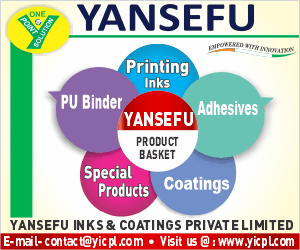
Ball Beverage Packaging India is a part of Ball Corporation, USA. Ball’s beverage packaging has made significant investments in the country by setting up two state-of-the-art beverage packaging manufacturing plants. Ball Corporation and its subsidiaries employ 21,500 people worldwide and reported net sales of US$ 11.8 billion, in 2020. We recently spoke with Amit Lahoti, vice president and general manager, Ball Beverage Packaging, India and South-East Asia Region to take a glance at India’s metal packaging market and Ball’s journey in India so far. Here is an excerpt from the interview.
Mahan Hazarika: Please tell us in brief about Ball India.
Amit Lahoti: Ball Beverage Packaging India is a part of Ball Corporation, USA. Ball Corporation and its subsidiaries employ 21,500 people worldwide and reported net sales of US$ 11.8 billion, in 2020.
Headquartered in Bengaluru, Ball India manufactures innovative and infinitely recyclable aluminum beverage cans. Our plants are capable to produce 185 ml, 250 ml, 330 ml, 355 ml and 500 ml cans. The customers are all key brands in the Indian beverage market in various categories like carbonated soft drinks, juices, dairy, energy drinks, and alcoholic drinks like beer, wine, flavored alcoholic beverages, and hard spirits. Exports are also made to South Asia, ASEAN, Africa, and the US markets.
Ball Beverage Packaging has made significant investments in the country by setting up two state-of-the-art beverage packaging manufacturing plants – the Taloja plant on the outskirts of Mumbai, which was set up in 2006, and the beverage can manufacturing plant in Sri City, Andhra Pradesh that was set up in 2016. Ball additionally has an aerosol can plant in Sanand, Gujarat.
Mahan Hazarika: Why should India look at aluminum as an innovative packaging solution?
Amit Lahoti: Packaging plays a major role in the beverage sector. The world is witnessing an increase in consumer demand for circular packaging solutions where the brands are judged based on their sustainability credentials. Both the Central and State Governments are taking several steps to reduce the usage of single-use plastics.
Aluminum stands out among the packaging substrates from a sustainability point of view as it can be recycled infinitely, easy to transport, and stock. While aluminum cans are trendy, they significantly increase energy efficiency as they chill faster and stay cool for a longer duration. Cans made from aluminum are also tamper-proof and safeguard manufacturers, retailers, and consumers from loss due to breakage. Ball aluminum allows brands to innovate with 360-degree printing capability, including a variety of innovative printing capabilities like matt, HD printing, glow in the dark, and thermochromic ink.

Mahan Hazarika: What is the potential of metal packaging in India?
Amit Lahoti:The metal packaging market in India is expected to register a CAGR of 6.52% over the forecast period from 2021 to 2026. This is backed by the Government’s push to eliminate single-use plastic aligned with the consumers’ preference for sustainably packed products. India’s consumption rates are rising steadily with the growing middle-income group population, changing lifestyles, and evolving consumer preferences. Conscious consumers are now looking at products that will help them preserve the environment. There is increased awareness around how plastic packaging is adversely affecting marine life, polluting the rivers and ocean, and ending up as non-degradable heaps of waste at landfills.
The current penetration of aluminum cans in India is as low as 1 beverage can per head per annum compared to 70 cans in Vietnam, 40 cans in China, and 140 cans in Brazil. This data itself shows India’s tremendous potential to achieve its sustainability goals by shifting to aluminum cans for beverage packaging.
Mahan Hazarika: What makes aluminum a better packaging material than other available materials?
Amit Lahoti:Aluminum beverage cans are the perfect example of a circular packaging solution as aluminum can be recycled infinitely without any loss of quality. A great proof of this is the fact that around 75% of all aluminum ever produced in the world is still in use today. Another interesting data point shows that used beverage can be recycled and returned to the shelf within 60 days. This ‘design for circularity’ combined with high end-of-life economic value makes recycling of cans viable and should be the goal to move from a linear ‘take-make-waste’ society to a fully circular economy.
Aluminum beverage cans supplied by Ball are a naturally sustainable and eco-friendly choice as aluminum is an infinitely recycled, permanent material that reduces energy consumption and CO2 emissions. Recycling reduces the energy needed for primary metal production by nearly 95% and significantly lowers greenhouse gas emissions. Additionally, aluminum packaging is tamper-proof and assures zero breakage, thereby giving manufacturers and consumers the full value for their money while creating a greener and cleaner world.
Mahan Hazarika: Please tell us about your latest developments directed towards sustainability.
Amit Lahoti:We are taking various steps towards further strengthening the sustainability credentials of aluminum cans:
ASI certification – We are working towards certifying the plants in India with the Aluminum Stewardship Initiative (ASI). The ASI performance has been developed, designed, and applied globally across the value chain to boost the aluminum industry’s responsibility and provide performance assurance independently and credibly.
Increase in recycled content – Aluminum beverage cans manufactured by Ball India have about 70% recycled content aluminum can sheet, and we are regularly working with our suppliers to increase this number. We have additionally partnered with Recykal, a waste management agency to collect used beverage cans (UBCs) across Bengaluru. The objective is to collect all UBCs from housing colonies, business parks, hotels, and restaurants, and have them recycled.
Renewable energy – Ball India is actively evaluating of moving all its manufacturing facilities to renewable energy to further reduce its carbon footprint.
Light weighting and down gauging – The specification of the aluminum beverage cans produced by Ball India is one of the lightest available in the world.
Mahan Hazarika: What are some of the significant trends you have noticed in metal packaging?
Looking at the sustainability and operational efficiency it offers, we see an increasing number of beverage companies using aluminum cans for packing and serving their products. These cans are rapidly becoming a sustainable style statement in the country. New beverage categories are now adopting aluminum beverage cans as their package of choice, including spring water, wine, and hard spirits.









